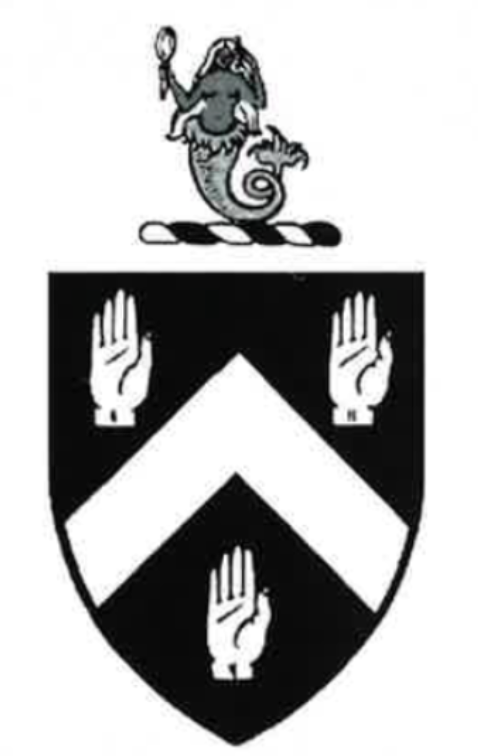The names O’Byrne and O’Beirne (or Byrne and Beirne) are often regarded as variants of the same name, much to the annoyance of the less-common Beirnes. In fact, the names spring from totally different sources.
O’Byrne is derived from the Gaelic O’Broin, meaning “descended from Bran,” an 11th century King of Leinster. The O’Byrnes were chieftains of what is now County Kildare but after the Norman invasion they were driven into the mountains of Wicklow, where the name is common today. It is also prevalent in Dublin.
The totally distinct O’Beirne name is from the counties of Roscommon and Leitrim. Historically, the O’Beirnes were based in a small area, “Tir Briuin,” in the north east of County Roscommon. The name, according to one source, means “descended from Bjorn,” Bjorn being Norse.
Among the interesting O’Byrnes is John Byrne (1825-1902) who was born in County Down. A surgeon, he spent his first year of medical practice caring for the people of his home town during the Famine. Later, in the United States, he developed the surgical process of cauterising. Thomas Byrnes (1842-1910) was an Irish-born New York policeman who rose to become chief of police. He is said to have introduced the “Third Degree,” or the use of mental strain rather than physical force, in the interrogation of criminals.
There were 187 Byrnes (and synonyms) in the American Revolutionary Army and Navy. These included Captain Clifford Byrne of the Continental Navy, Captain James Byrne of the Pennsylvania Navy, and Captain John Byrne of the Philadelphia City Militia.
During the Civil War, Colonel Richard Byrnes was a commander of the Irish Brigade. He was killed at Cold Harbor.
In Ireland, perhaps the best-known of the family is Fiach McHugh O’Byrne (1541-1597), the Wicklow chieftain who, from his stronghold at Glenmalure. successfully resisted English rule. Another rebel was Miles Byrne (1780-1862), the Wexfordman who fought at the famous battle of Vinegar Hill in 1798. He later joined with Robert Emmet’s rebel movement and was sent to France to enlist French help for the cause. Miles remained in France and served with distinction in the Napoleonic armies from 1804-1815. In 1813 he was made Chevalier of the Legion of Honour. There is a monument in his honour in Montmartre, Paris.
In American politics, James F. Byrnes, the son of Irish immigrants, had a long career. Elected as congressman for South Carolina in 1910, and to the Senate in 1930, he was a key supporter of Roosevelt’s `New Deal.’ Appointed to the Supreme Court, he resigned after 16 months, to take a more active part in the war effort. He served as director of the Office of Economic Stabilization and later as director of the Office of War Mobilization. In 1945 he was appointed secretary of state by President Harry Truman. He resigned in 1947, over differences with the more liberal Truman. After three years in private life, Byrnes returned to the political arena, as Governor of South Carolina — winning the election on the school segration ticket.
In more recent times, Jane Byrne, became the first woman to serve as mayor of Chicago. She held office from 1979 to 1983.
The O’Beirnes are a rarer breed but have produced several notables including Thomas Lewis O’Beirne (1748-1832) who was initially a student in a Catholic seminary, but eventually became a Protestant clergyman. He served as a fleet chaplain in the British Navy and later became active in English politics as a supporter of the Whig party. He was eventually made Bishop of Meath in Ireland and held this position until his death. Another O’Beirne who was also of the religious persuasion was Eugene Francis O’Beirne. Born in Longford in 1809, he entered the Catholic seminary of Maynooth in 1826 but was expelled in 1834. He became an active anti-Catholic lecturer. In 1850 he went to the North America and, in 1862, joined one of the parties traveling Overland to the Cariboo goldfields of Canada. Due to his quarrelsome nature and insobriety, he was abandoned by this group in Edmonton. He then joined the party of Milton and Cheadle who wrote about his objectionable behavior in The Northwest Passage by Land. Despite this notoriety, in 1918 the Canadian Government named a peak of the Rockies after him.
The most famous of the North American family is James Rowan O’Beirne (1833-1917), who fought in many battles during the Civil War. Rising to the rank of Captain of the New York Volunteers, he won the Congressional Medal of honour for the bravery he showed in these various engagements. He was later in charge of tracking down John Wilkes Booth, the assassin of President Lincoln. In later life he was a Washington columnist, newspaperman, and Commissioner of Immigration at the Port of New York.
Editor’s Note: This article was originally published in the September / October 1997 issue of Irish America. ⬥


Leave a Reply